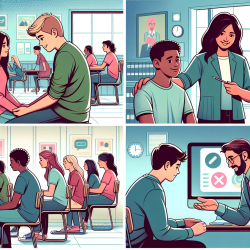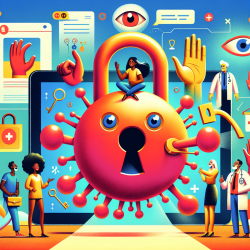In the realm of online therapy, staying abreast of the latest research is crucial for enhancing the skills of practitioners. One particularly insightful study, "The relationship between childbirth self-efficacy and coping styles of problem based and emotive based in nulliparous pregnant women," offers valuable insights that can be applied to improve therapeutic outcomes. This blog explores the key findings of this research and suggests practical applications for online therapy practitioners.
Understanding Childbirth Self-Efficacy
Childbirth self-efficacy is a critical determinant of how women cope with the stress and pain associated with labor. It refers to a woman's confidence in her ability to manage the challenges of childbirth. Higher self-efficacy is linked to lower levels of fear and pain, reduced reliance on pain-relief medication, and greater satisfaction with the childbirth experience.
Problem-Based vs. Emotive-Based Coping Styles
The study categorizes coping styles into two dimensions:
- Problem-Based Coping: Involves proactive strategies such as seeking social support, taking responsibility, and planning to solve problems.
- Emotive-Based Coping: Focuses on managing emotional responses without addressing the root cause, including strategies like avoidance and direct confrontation.
Key Findings of the Study
The research, conducted on 323 nulliparous pregnant women, revealed several critical insights:
- There is a significant direct correlation between problem-based coping styles and childbirth self-efficacy.
- Problem-based coping styles predicted an increase in childbirth self-efficacy.
- Emotive-based coping styles did not show a significant correlation with childbirth self-efficacy.
Implications for Online Therapy Practitioners
These findings underscore the importance of fostering problem-based coping strategies in therapeutic settings. Here are some practical steps practitioners can take:
1. Educate Clients on Coping Styles
Help clients understand the difference between problem-based and emotive-based coping styles. Use examples and role-playing exercises to illustrate how problem-based strategies can be more effective in managing stress and increasing self-efficacy.
2. Develop Problem-Solving Skills
Incorporate problem-solving training into therapy sessions. Teach clients how to identify problems, generate solutions, and implement action plans. Encourage them to seek social support and reassess situations positively.
3. Design Educational Interventions
Create educational materials and workshops focused on problem-based coping strategies. These interventions can be particularly beneficial for expectant mothers, helping them prepare mentally and emotionally for childbirth.
4. Encourage Responsibility and Planning
Promote a sense of responsibility and proactive planning in clients. This can include setting realistic goals, making informed decisions, and preparing for potential challenges.
Encouraging Further Research
While this study provides valuable insights, it also highlights the need for further research. Online therapy practitioners are encouraged to stay informed about the latest studies and consider participating in research projects to contribute to the growing body of knowledge in this field.
Conclusion
The relationship between coping styles and childbirth self-efficacy offers valuable lessons for online therapy practitioners. By focusing on problem-based coping strategies, therapists can empower clients to manage stress more effectively and enhance their overall well-being. To read the original research paper, please follow this link:
The relationship between childbirth self-efficacy and coping styles of problem based and emotive based in nulliparous pregnant women.










